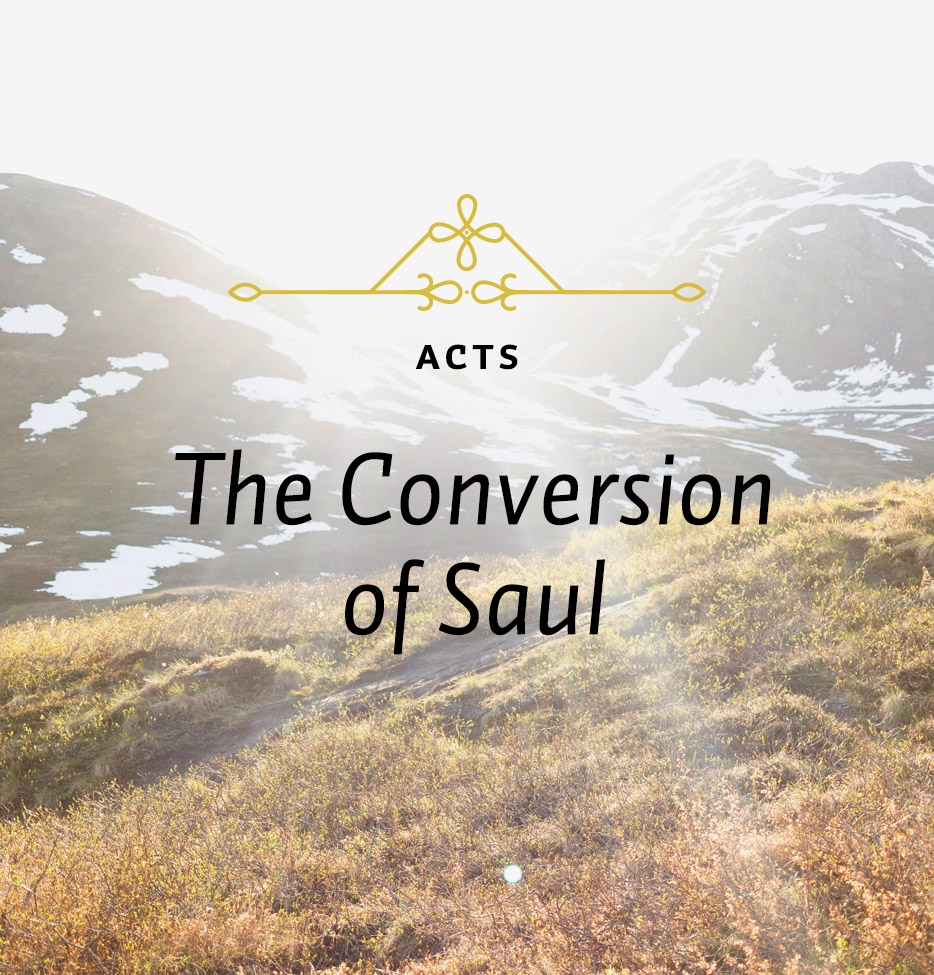We must recall that Saul must have thought not only that the Christians were wrong, but that they were deceivers. Yet in the trial and martyrdom of Stephen, for the first time in his life Saul must actually have come face to face with a true and articulate Christian. What an impression it must have made on a man like Saul! Saul was educated; so was Stephen. Stephen may not have had the equal of Saul’s superb education, but when Stephen gave his testimony before the Sanhedrin, he demonstrated a knowledge of the Scriptures that was at least equal to that of his chief persecutor. Moreover, he displayed it effortlessly. It was a natural part of him. Stephen also made his points clearly: that God was no respecter of persons; that He had revealed Himself to Gentiles as well as to Jews; and that through their history, those who were favored by a special revelation had resisted the truth, martyred the prophets, and now had killed Jesus. Could Saul have given an address that powerful?
I think, too, that he must have been impressed with Stephen’s final words. As Stephen died, he looked and said, “I see heaven open and the Son of Man [Jesus] standing at the right hand of God” (Acts 7:56).
Could Stephen have been lying? In those circumstances? At that moment, the moment of his death, when he was to appear before the great Judge of all? In circumstances like those, is it possible to think that a man would cling to such an evil deception, saying to those who were the appointed earthly judges of his people that he saw Jesus when in reality he did not see Him? If this was a deception, it was a deception of a most remarkable order. And Saul, having the mind he did have, must have been impressed with it.
There was also the way in which Stephen died. As he died, he repeated the words of his Master: “Lord Jesus, receive my spirit” and “Lord, do not hold this sin against them” (vv. 59-60). I suspect that at this point Saul must have asked whether he could have died like that. Was his faith as strong as Stephen’s? Could he die with peace of mind and heart? Did he have a moral character that could ask forgiveness for his murderers at the moment when he was being killed?
Prejudices die hard, however. So although Saul may have been kicking against the goads, he was nevertheless still kicking against them. It was while he was in that frame of mind that Jesus met him.
There is an irony in the story at this point. Saul was concerned that the religion called “the Way” was spreading. It had started in Jerusalem; he was doing everything he could to stamp it out there. But he heard rumors that the faith was taking root in Damascus, a Gentile city in Syria. We have been reading how the Gospel spread to Samaria. That was a half-Gentile, half-Jewish area. Now it had gone even beyond that. It had spread the whole way to Damascus, one hundred twenty miles to the north—this in spite of Saul’s persecution.
But here is the irony. In the chapter immediately before this we have been told about Philip and the Ethiopian, which shows how the Gospel was spreading to the south. Saul was concerned that the Gospel was spreading north. It had gone to Samaria and beyond that to Damascus. He was on his way to Damascus to arrest the Christians in that city, bring them back to Jerusalem and stamp Christianity out. But while he was on his way north, God picked up Philip from Samaria and “leap-frogged” him over Saul, as it were, sending him down the Gaza road in the direction of Ethiopia. Saul was trying to stamp Christianity out in one direction, while God was advancing it rapidly in the other.
On the way to Damascus, the Lord stopped Paul in his tracks. There was a bright light from heaven, and a voice.
“Who are you, Lord?” Saul said.
“I am Jesus, whom you are persecuting,” came the reply. “Now get up and go into the city, and you will be told what you must do” (vv. 5-6).
What a thunderbolt in Saul’s intellectual sky! Saul was so sure of himself. True, he had been resisting the goading of God concerning Stephen. Nevertheless, he believed that the Christians were wrong, that they were out to deceive people. Suddenly, in this remote place as barren as the area in which the Ethiopian was traveling, without a Christian anywhere around, there was a light from heaven, God spoke, and God was Jesus. What an utterly revolutionary happening!






